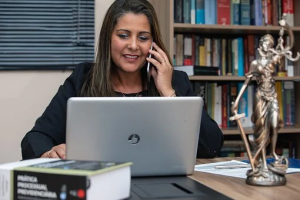News
Understanding the Duties of a Personal Injury Lawyer
If you’ve ever been involved in a road accident, a workplace-related accident, or medical malpractice, then you know how important a personal injury attorney is. They go by different names and wear different hats. At times, they’ll be called product liability attorneys, medical malpractice attorneys, injury lawyers, or accident attorneys to mention but a few. Whatever you call them, one thing to note is that they have your best interests at heart when it comes to representing you in a court of law with your various legal issues.
Now, there are personal injury attorneys who like it when they have their feet on the table and have no understanding of the law whatsoever. On the other hand, you have personal injury attorneys who’ll get down to brass tacks when solving your legal issues. They are selfless in their line of work and are committed to ensuring that you’re justly served. The latter is hard to come by and you’ll be grateful they came by your way in your greatest time of need. Without any further delay, below are the duties of a personal injury attorney.
1. Interviewing Their Client
When you’ve been involved in any legal discord that involves tort law, then you’ll need to consult with a personal injury attorney. It may be after a car accident, medical malpractice, or as earlier mentioned, a workplace-related accident. In your initial meeting, your attorney will need to conduct an interview, of course after going through the payment structure and how all those logistics will be handled.
This is an important step that requires you to pay close attention to what your attorney says. This is after having received treatment for the injuries sustained or after any damages you may have experienced. Expert attorneys at https://www.noogalaw.com/ insist that the initial consultation with your injury attorney will help in determining whether they are the right attorneys for your case. On the other hand, the best attorneys will ensure that you’ve understood the laws surrounding your case and whether you have a chance of winning the case or not. It’s during the initial interview that you’ll want to come clean with your attorney and discuss issues with illness, injuries, or damages. Before your first meeting with a personal injury attorney, you’ll need to have the following documents:
- Description of the accident
- Medical bills
- Diagnosis and treatment reports
- Documents that explain whether you’ll require any future treatment
- Addresses of hospital/s you’ve been treated in
- Insurance information
- Police reports
- Your current health condition
2. Investigations
After the initial consultation and after the attorney and the client have agreed and discussed how they’ll work together, the attorney takes it upon himself to investigate the client’s claim. This is the most crucial step in any personal injury case. Claim investigations will help in case validation and will usually take some time. Ideally, a personal injury attorney needs to speak to witnesses on the police report, obtain the pictures taken at the scene of the accident either from you, video footage from the government traffic cameras, or nearby CCTV cameras.
3. Dealing with Insurance Adjusters
Now, dealing with insurance adjusters is no easy thing. For starters, they serve insurance companies and they’ll follow their employer’s instructions and procedures to the letter. In short, they are not in it to lose. This means that they’ll do anything they can to deny your claim or reduce it. They’ll employ different tactics that are only known by your injury attorney. Personal injury victims are at a disadvantage if they choose to go it alone without the help of a qualified personal injury attorney. Your attorney will help in negotiating for the best settlement and if it means taking your case to trial, then this is exactly what they’ll do.
4. Preparing Clients for Depositions and Hearings
It’s not easy going through court proceedings, especially when you have to recount the events that culminated in your accident. This takes prior preparations and readiness in terms of how to answer questions during cross-examinations with honesty and without having to jeopardize the case.
5. Advisors
Yes, you guessed it right! There’s a good reason why attorneys will be referred to as counselors. In legal matters, this is a person who will offer unsolicited advice on various legal issues and they’ll be critical in providing you with insights on how to proceed with your case. They’ll be there when important decisions are made and will tell you what to expect.
Personal injury attorneys’ duties revolve around ethical and professional codes of conduct. They are professionals at what they do and they are sworn to protect the interests of their clients. This means that an attorney will only share what you want them to share. In addition to this, they’ll protect their clients from being victimized by insurance companies or the companies they work for.


























